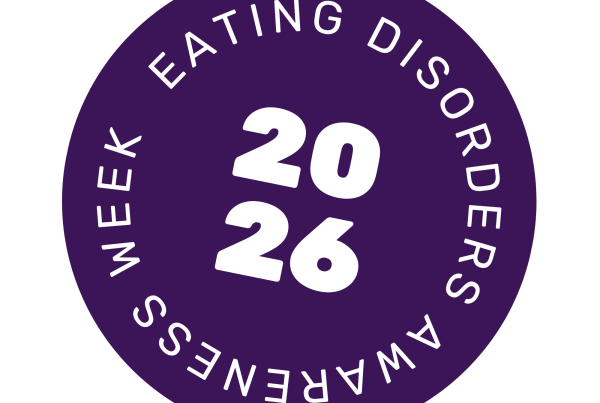Employers positive about mental health at work can sign the Mindful Employer Charter to make a public declaration of their commitment to creating mentally healthy workplaces.
JCT600 took that step 12 months ago and Mindful Employer Project Coordinator, Leigh Staunton, has been catching up with their Head of People, Nicola Tordoff-Sohne, to celebrate and reflect on their first anniversary as a Mindful Employer.
Hi Nicola, tell us a bit about you and your role at JCT600.
I’m Head of People at JCT600 and as part of my role I also lead on Wellbeing. We’re a family-owned motor retail business with over 50 locations across the UK. Part of my role is all about supporting the mental, physical and emotional wellbeing of our colleagues. I work closely with our wellbeing manager, our People team, Mental Health First Aiders and leaders across the business to help build a culture where people feel supported and able to thrive – both at work and in life.
Where did you first hear about the Leeds Mindful Employer Network and why did you decide to get involved?
I first came across the Leeds Mindful Employer Network while researching local initiatives that support mental health in the workplace. It stood out as a collaborative space where like-minded employers could share ideas, challenges, and best practices. As someone leading wellbeing strategy, I knew how valuable that kind of network could be – not just to gain insight, but to keep us accountable and connected to what really works.
Why did JCT600 decide to sign the Mindful Employer Charter last year?
Signing the Charter was a public commitment to something we already cared about and believed in – that mental health is critically important and that we have a responsibility as an employer to create a supportive environment that supports positive mental health and reduces stigma around accessing support. We’d already made progress internally, but we felt it was time to put a stake in the ground and say: ‘This is who we are. And we’re committed to doing more.’
Why is employee mental health and wellbeing a priority at JCT600?
 Because we care about our people. Our people make this business what it is and we’ve seen first-hand the difference it makes when colleagues feel safe, seen, and supported – and equally, the impact when they don’t. This reinforces how important it is to make wellbeing a visible, everyday priority. A thread that runs through everything we do. When people feel well, they bring their best selves to work – and that benefits everyone.
Because we care about our people. Our people make this business what it is and we’ve seen first-hand the difference it makes when colleagues feel safe, seen, and supported – and equally, the impact when they don’t. This reinforces how important it is to make wellbeing a visible, everyday priority. A thread that runs through everything we do. When people feel well, they bring their best selves to work – and that benefits everyone.
What do you think are the main challenges that colleagues in the automotive industry may face, in terms of health and wellbeing?
We work in a performance-driven industry and the fast-paced, target-focused nature of our environment can make it difficult for people to slow down and prioritise their wellbeing. Many of our roles are customer-facing, and our colleagues work incredibly hard to deliver the best possible experience – but that constant pressure can lead to stress.
According to our industry charity, BEN, 57% of automotive colleagues report experiencing stress. The rising cost of living is adding to this strain, with the same survey revealing that 1 in 6 people in our sector are skipping meals to save money.
On top of that, the automotive industry remains predominantly male, and sadly, stigma around mental health still exists – particularly when it comes to men opening up or asking for support. There’s still work to do, but raising awareness of these challenges is a crucial first step.
It’s a year on from when you first made your public declaration of being a Mindful Employer Charter Signatory. Any highlights/key achievements from this first year?
We’ve made our commitment clear: to build a culture where…
- People choose to join us and choose to stay
- Every colleague feels genuinely supported and inspired to support one another
- Everyone feels valued, motivated, and empowered to give their best
To bring this to life, we’ve refreshed our wellbeing strategy and focused our support across three key areas: helping managers feel confident in supporting wellbeing, encouraging colleagues to look out for each other, and empowering individuals to prioritise their own health.
We’ve expanded our network of Mental Health First Aiders and embedded them locally to lead change on the ground. We run regular listening sessions, host a full calendar of wellbeing events, and support a gender balance community group. We’ve also developed tailored guidance to help our managers have more open, supportive conversations around mental health. It’s all part of creating a workplace where wellbeing is woven into the everyday experience.
How did you mark Mental Health Awareness Week this year? I hear you tied it in with Walking Month too.
We did! With this year’s theme being “community,” it made perfect sense to tie it in with our annual JCT600 Walk & Talk. We encouraged teams across the business to come together for organised walks in nature with colleagues, friends, family and even four-legged companions!
It was a fantastic way to promote both mental and physical health, highlight the importance of community for our wellbeing and give colleagues a chance to connect outside of the usual work setting. The event also sparked meaningful conversations about mental health, which is exactly what we aim to encourage.
What would you say to an employer considering taking the step to becoming an official Mindful Employer Charter Signatory?
Do it, but do it with intention. Signing the Charter is a great step, but the real impact comes from the actions you take afterwards. It’s not about having all the answers – it’s about committing to listen, learn, and improve. You’ll join a supportive network of employers who are on the same journey, and you’ll be making a clear statement to your teams that their wellbeing matters.
What are your key focuses in terms of health and wellbeing for the year ahead?

Biscuits and hot drinks shared with employees along with the employer voices survey
This year, we’re focused on making our wellbeing support more local and accessible by empowering our network of Mental Health First Aiders and wellbeing champions to lead initiatives and check-ins within their own sites. We’re also refreshing our manager training around mental health and absence, updating our tools and guidance, and resetting expectations around the role of people leadership in supporting wellbeing.
Listening to our colleagues remains a top priority. We host regular listening sessions, ensure every colleague has meaningful one-to-ones with their manager and use our all-colleague survey to gather honest feedback – including a dedicated section on wellbeing. The insights we gain help managers understand how psychologically safe their teams feel and provide tailored actions to help them respond effectively.
We’re also placing greater emphasis on financial wellbeing, recognising the increasing pressures many colleagues are facing. We’ve introduced monthly communications focused on financial health and signpost colleagues to helpful tools and support. In addition, our benefits platform provides access to a wide range of retail savings to help colleagues make their money go further.
Thanks so much to Nicola for contributing to this blog.
Find out more about becoming a Mindful Employer Charter Signatory here.
Check out our 10 steps toolkit for building a mentally healthy workplace here.



